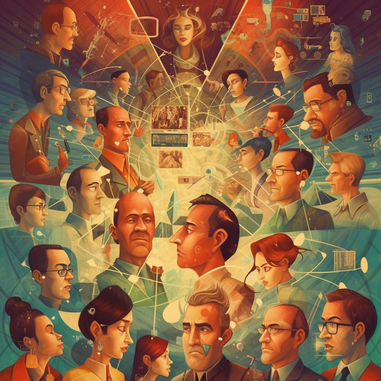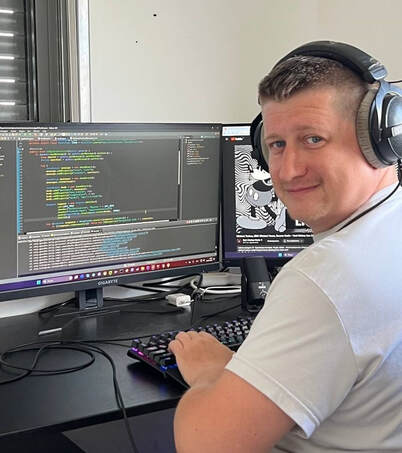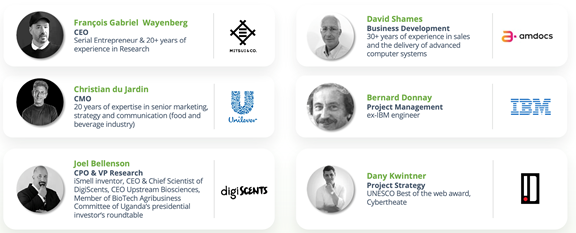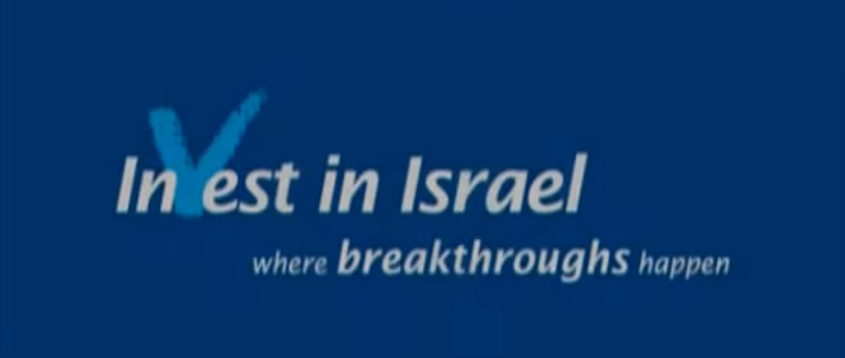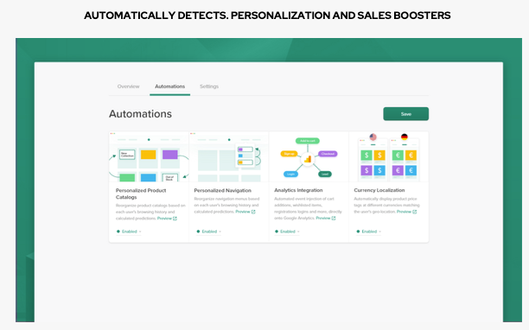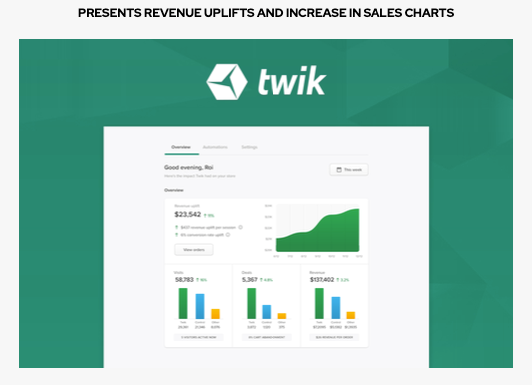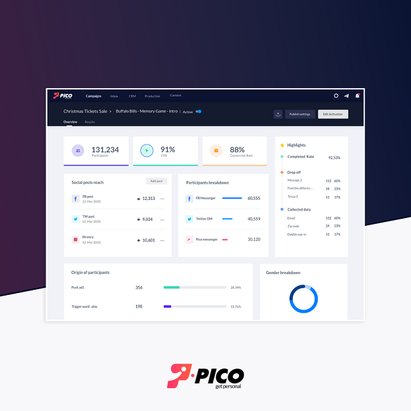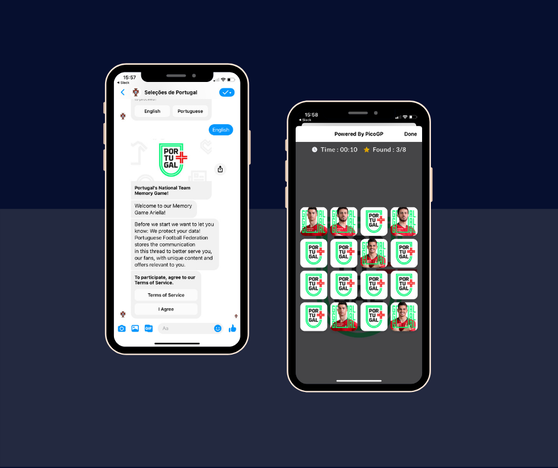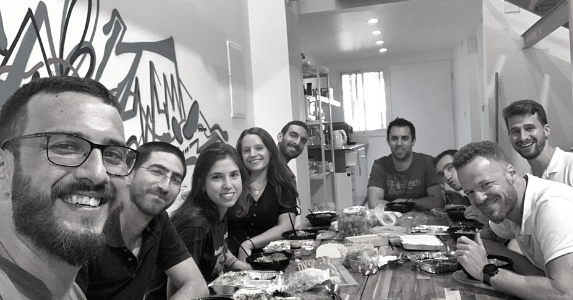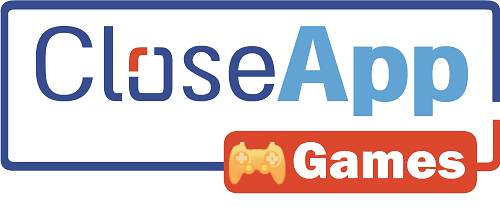|
By Arlene Marom URL for this Blog Post: https://bit.ly/3JWZRKu MurMurSaga is a first-of-its-kind social platform that is rewriting the rules of content creation – enabling users to become part of truly unique stories. Combining elements of role-playing games and interactive stories, the platform provides a fresh approach to social networks and storytelling – a gateway to a world overflowing with limitless possibilities. Stories YOU Control Implementing advanced AI, MurMurSaga’s distinctive approach creates dynamic and personalized interactions for every user, producing an endless stream of one-of-a-kind stories. Unlike traditional networks and story-reading platforms, users actively participate in events, make decisions, create their own universes, and influence the course of their own adventures. An Experience to Be Enjoyed by Everyone The platform is for people of all ages who are seeking a positive and interactive space, a doorway into a new reality, where they can be the heroes of their own fantasies and enjoy the breathtaking artwork created by AI. Every story comes alive with fabulous AI-generated avatars and images – and music underscores every moment, woven into the unfolding story to create an immersive and everchanging experience. Share Your Quests The platform allows you to share your stories with the vibrant MurMurSaga community of both real and AI users – forge connections and team up to jointly create unforgettable epic journeys and unravel mysteries that transcend the boundaries of reality. Make a name for yourself in MurMurSaga’s rich tapestry, amass achievements and titles, and unlock your potential while creating new chapters, new sagas, every day. MurMurSaga’s Founder/CEO MurMurSaga is the dream of Igor Ruvinskii, a programmer currently studying at Tel-Ran. Igor has a wealth of ideas and plans – and a prototype of his project – which he is developing single-handedly with immense enthusiasm. Igor’s dream is to create a space where people can sit back and relax, forget the troubles of the day, and experience an unparalleled stream of adventures of their own making in which they are the central characters. Project Status With the prototype completed, Igor is now actively seeking partners, mentors, and investors to join him on this exciting journey.
Contact Details Website: https://murmursaga.com/ LinkedIn – https://www.linkedin.com/in/igor-ruvinskii-62517765/ Email: [email protected] AJINOMATRIX: Digitizing Taste, Flavor and Aroma for the Food Industry with AI-Based Software6/11/2021 by Arlene Marom URL for this Blog Post: https://bit.ly/3BVxDsK Overview The global food industry faces rapidly evolving consumer demands that require a continuous stream of new and enticing products. In order to keep up, digitization is being introduced into many aspects of the industry. However, until now, capturing the secrets of taste and smell have eluded food scientists. For the past two decades, Francois Wayenberg, the Founder of Ajinomatrix, has been fascinated by this challenge. As an economist from the University of Brussels, he was determined to make an impact on this aspect of the food industry while working at a large Japanese trading company focused on food R&D – and initiated what would eventually become Ajinomatrix. Over the years, based on accumulated knowledge and experience, the company’s future capabilities were honed. For over 20 years, Francois Wayenberg’s research network was involved in fundamental and theoretical sensory research standardization. Today, leveraging years of ground-breaking insights, Ajinomatrix is a startup company that provides a wide range of services through a blend of SaaS and an extensive open source platform. The Solution Committed to simplifying the user experience, the company solves a number of critical issues for the food industry. First and foremost, using today’s most advanced AI, Ajinomatrix has digitized the senses of taste, flavor and aroma – making sensory science simple. Among other things, digitization overcomes a problem faced by the chemical reproduction of flavors – enabling permanent, precise copies of the flavor, without any degradation. Interfacing with consumers, tasting panels and sensors such as e-noses or e-mouths, Ajinomatrix’s AI-based software digitally measures the senses of taste and smell, delivering easy-to-interpret data that can be shared and reused across the industry, and enable fast, accurate decisions. Ajinomatrix provides customizable applications that create the sensory measurements required by each organization. Evaluating and analyzing data throughout all management and product development processes, the company enables clients to digitally quantify sensory measurements. This accelerates marketplace releases, ensures higher success rates with less product rejection, and prevents costly failures. Products can be localized based on their sensory profiles, and ingredients can be substituted to meet specific objectives and applications. Overcoming the industry’s tendency to store information in disparate data silos – resulting in inefficiencies and wasted resources – Ajinomatrix’s sensory software digitally integrates the various silos and consolidates them into a single data warehouse, transforming them into a simple, easy-to-use output file for smart, rapid decision-making. The software will eventually standardize measurements and create a global model that will render files that will become compatible – once taste and scent measurement become digital. Target Markets Ajinomatrix targets medium to large food and beverage companies, food scientists, flavor and fragrance companies, organoleptic labs, food wholesalers and manufacturers of sensors – with a business model based on co-development. The Team
Along his journey to establishing Ajinomatrix, Francois Wayenberg has won international awards including from UNESCO, worked with NASA, and took part in experimental projects in Israel. An inventor and serial entrepreneur, Founder Institute graduate, and industrial collaborator at the AI Lab at the University of Brussels, he has also managed to author 24 books, write poetry, and work as a cinematographer. Joel Bellenson, CPO & VP of Research, brings 30 years of executive experience in agriculture and biochemical businesses. The companies he has co-founded have attracted over USD 100 million of investment. A Fortune 500 company acquired one of his companies. He took another to the public market. He was CEO & Chief Scientist at DigiScents, which DNA-sequenced the human neuroreceptors for fragrance and flavour and developed the first digital scent synthesizer from primary fragrances and flavors. He was also the CEO & Co-founder of DoubleTwist, the first to annotate the Human Genome, and was the Inventor, Founder and Manager of the DNA Core Facility Robotic Equipment and Services at the Stanford University Medical Center. Christian du Jardin, CMO, brings 20 years of business expertise in senior marketing, strategy, and communication roles in blue chip companies in the food and beverage industry (Unilever, Pepsico Restaurant International) in Belgium and Europe. Founder and managing partner in 2014 of Kera Way Consulting, he mentored C-levels and management teams facing growth and change challenges (reference clients include Deloitte, bpost, BNP Paribas AM, etc). He is AI Orange Belt-certified, author and keynote speaker of the book, Manager 3.0 – Seven Principles to Manage the Change Induced by AI (released May 2020 in French), and is a consultant/facilitator for the Digital Wallonia Program (2021). He loves and has made multiple trips to India, practices mindfulness, and in 2019, set up Centre Psyché, a multidisciplinary center to help people in situations of stress, burn-out and life transition. Current Status Ajinomatrix has a presence in a number of global locations including Jerusalem, Paris, Brussels, Tokyo, Barcelona, Kampala, and Mexico City. They have 35 qualified business prospects and 10 signed LOIs, as well as a number of pre-sales use cases. The company participated in Y Combinator’s School for Startups and the Founder Institute, and, from a group of 110 startups, they were considered by Mass Challenge to be one of the two most traction-generating companies. They recently participated in the Agri-Food Summit in Tel Aviv and will have a video address at EIT Paris with team members on premises. Future Plans Ajinomatrix has developed a new concept: It is creating unique positioning for itself as a hybrid startup and research foundation. The company plans to open research facilities in three global locations including Israel. In order to implement its LOIs and establish the first research facility, they are currently focused on a funding round, seeking €2 million. Contact Details Email: [email protected] URL: www.ajinomatrix.org Tel: +972-54-3514366 by Guest Author Sherwin Pomerantz URL for this Blog Post: https://bit.ly/2XRKkXN According to the latest data, Israel’s innovation technology sector broke a new capital funding record this week, reaching a total of $10.5 billion raised since the start of the year. In doing so, it matched the total raised throughout the whole of 2020, which was itself a record year, in less than half the time. According to the data, the significant rise in investments focused on the more advanced stages, with most of the capital (64%) invested in rounds C or later. 2021 has already set a record for the number of mega-rounds (investments of over $100 million) raised, with 30 having been completed so far compared to 21 mega-rounds throughout all of 2020. These rounds represent 53% of all capital raised, and for the first time, they account for more than half of the total funds invested. The marked increase in investments in Israeli tech companies (most of which originate from foreign investors) is even more pronounced when compared with investment performance worldwide. While Israel recorded an increase of 137% for the first five months of 2021 compared to the first five months of 2020 (according to Start-Up Nation Finder), the increase globally was only 89%. Europe recorded an increase of 123% over the same period, while the U.S. saw an increase of 91% and Asia saw an increase of 69%, according to PitchBook data. The bulk of funding went to cybersecurity, fintech, and enterprise solutions companies, with the top three sectors pulling an accumulated $6.2 billion or 60% of all investments. These sectors are all software, strongly B2B oriented, and saw huge increases in demand for their solutions over the last year as work practices changed. This activity attests to the continued vitality of Israel’s tech sector at a time when the world has its concerns about the economic recovery after covid. Clearly the investment community sees Israel’s economic growth as going in the right direction…..UP!  About the Author Sherwin Pomerantz has lived in Israel for 34 years and is president of Atid EDI Ltd., a Jerusalem-based business development consulting firm, the founding Chairperson of the America State Offices Association, and a former National President of the Association of Americans & Canadians in Israel. He has 24 years’ experience in assisting overseas companies and public entities in their export promotion and foreign direct investment attraction efforts.  Contact Details Atid EDI Ltd., POB 45005, 91450 Jerusalem T: +972.2.571.0199 | M: +972.54.668.4803| F: +972.2.571.0713 | S: sherwinpomerantz E: [email protected] | W: http://www.atid-edi.com | Twitter: @sherwinp by Arlene Marom URL for this Blog Post: https://bit.ly/2XQ5jtD Increasing the profitability of ecommerce businesses is no simple matter. Whether the goal is to boost store revenue, B2B leads, page views, CTR, or average session duration in media/content websites ‒ it’s costly, involves a steep learning curve, and requires time-consuming manual labor. A technological solution is clearly needed. The twik Innovation twik ‒ the first real-time automated web-personalization engine ‒ solves this critical issue for business owners, ecommerce site managers, marketers, CROs, agencies in the ecommerce industry, and marketplaces (like Shopify). Using cutting-edge automation technology that requires no special knowledge or human intervention, twik enables online businesses to know their audiences, completely personalize their websites, and enhance their customers’ shopping experience ‒ leading to significantly increased conversion rates, sales, revenue, and ultimately, ROI. twik’s uniqueness doesn’t end with automation. The patent pending, GDPR-compliant system is implemented using only a single line of code. It doesn’t require a connection to third party systems. It doesn’t use cookies. And, it works in real time ‒ automating the personalization of every visitor. The Company twik’s CEO, Roi Sorezki, has been involved with the Internet optimization and marketing community since 1997, when, as a teenager, he founded his first company, specializing in web development and design. Before founding twik, he was a serial entrepreneur and owner of an incubator that developed several startups. twik’s management team ‒ who were previously an employee, a client and an investor in his incubator ‒ are now the company’s CTO, CSMO, and CSO. Located in Tel Aviv, the growing company currently employs 20+ people as well as using the services of ten outsourced professionals. The company has participated in various webinars, has presented at events including Shopify, SummIT, PipelBiz, and Axis Innovation, and has won several awards for innovation in Retail and CX. Their first investors were friends and family, then corporate investors and angels, and currently they are engaged in negotiations with VCs for a Series A round. An Evolving Focus Their journey has included several pivots ‒ from serving only enterprises to targeting SMBs as well, and from a freemium basis only to also supporting subscription-based packages. Today, twik has 10 thousand clients around the world, across multiple verticals (e.g., ecommerce, B2B, media/content websites), and ranging in size from micro mom-and-pop shops, to SMBs and large Forbes 1000 enterprises, with an installed customer-base that continues to increase by at least 1000 installs per month. twik’s long-term vision is to become a global leader, dominating the personalization automation industry across all major marketplaces and verticals. Contact Info
Website: www.twik.io Email: [email protected] Facebook: https://www.facebook.com/twik.io LinkedIn: https://www.linkedin.com/company/twik YouTube: https://www.youtube.com/channel/UCgtrcvW7kRcabERa8PgGYxw Twitter: https://twitter.com/TwikPlatform File-based cyberattacks are an ongoing and ever-present threat to businesses of all sizes, from the largest enterprises to the smallest SMEs, and across all industries and sectors. Dangerous malware can be hidden in any file ‒ data, PDF, image, or video ‒ often avoiding even the most sophisticated and costly anti-malware systems. Clearly, a new approach is needed. Introducing a Powerful New Concept for Disarming Malicious Code in Files odix has developed and patented a new type of Content, Disarm and Reconstruction (CDR) technology ‒ TrueCDR ‒ that disarms malicious code, eliminating threats before they reach the network. Based on this new technology, odix solutions generate a malware-free copy of the file instead of trying to detect the malware, thus allowing files to be safely opened. Overcoming the limitations of traditional CDR products, odix solutions are proactive and preventative, effectively purging both known and unrecognized malware from all incoming files over all data channels. From Enterprises to SMBs Initially, odix targeted mainly enterprise customers, providing a unique blend of enterprise-level deep file inspection protection options for this market. However, the company began to realize that over 90% of business transactions and financial activities are performed by small- to medium-sized businesses, many of them unaware of cyber threats and without the tools to protect themselves. This has resulted in more than 60% of SMBs going out of business within six months of experiencing a cyberattack. Recognizing the importance of solving this critical issue, the company presented a plan to the European Commission that would use their already-proven on-premise solutions, and make them accessible and affordable for SMBs. They were awarded a Horizon2020 grant of €2m to develop the concept, which was branded FileWall ‒ a firewall for files ‒ and became odix’s flagship security add-on solution. A Microsoft Collaboration FileWall is a one-click solution for managed service providers, with a partner-based go-to-market strategy. A decision was made to develop the first application of FileWall for Exchange Online for Microsoft 365. Based on serverless and Lambda technology, with a goal of scalability, FileWall was launched in September of 2020, with PR activities implemented jointly with Microsoft. In addition to FileWall’s proven technology and product stability, major advantages for Microsoft 365 users are the solution’s single-click deployment, zero maintenance, and exceptional price point (starting as low as $1/user). For enterprise customers, odix products offer broad admin transparency and granular policy options to ensure the highest level of risk visibility across networks. The Company Located in Rosh HaAyin, Israel, odix currently has 35 employees in addition to offices in the US and Europe. The company has presented at events around the globe including GESIC, as well as regional events targeting CSPs and MSPs. Investors have included angels, private investors, and the EU Horizon 2020 grant. They are currently raising Series A funding. The Team
The team is made up of experienced, high-level professionals. Dr. Oren Eytan (pictured above), co-founder of odix, spent 25+ years in the IDF, with his last position being the Head of the Cybersecurity Unit of the IDF, responsible for protecting all critical infrastructure. Once retired from the military, Dr. Eytan entered the civilian sector, working for various organizations including Motorola. He co-founded odix as a cybersecurity company that provides deep file inspection and CDR-based solutions that defend against today’s most advanced cyberattacks. David (Dudu) Geva, who co-founded the company together with Dr. Eytan, is an experienced executive with decades of achievements working behind the scenes of innovative Israeli high tech companies. Completing the executive team are: Benjamin Shachar (CPA, MBA), CFO, who has extensive experience in senior management and finance roles at early-stage, high tech companies that were backed by leading VCs and private investors; Revital Libfrand, CMO, who brings vast experience in marketing, business development and go-to-market strategies; Omri Eytan, CTO, who played major roles in various companies in the advertising, telecom and infrastructure sectors over the last 15 years as a programmer, researcher, strategist, and manager; and, Ari Fructer, CBO, who brings over 20 years of diversified experience in consumer products and high tech. Vision and Goals The company’s goal is to expand the adoption of solutions ‒ as well as a recognized standard ‒ for fighting file-based attacks. Their vision is for odix’s solutions to become the industry standard for file sanitation, used by experts and professionals across industries to provide deep inspection into files ‒ and to provide users and organizations with clean files almost instantaneously. This vision includes the odix green V (for verified, malware-free files) becoming the global symbol for files that are ready to use, fully functional, and malware-free. The odix vision, unlike many startup visions, is well on its way to being achieved. Contact Info Email: [email protected] Website: www.odi-x.com Twitter: www.twitter.com/ODICDR LinkedIn: https://il.linkedin.com/company/odixcdr YouTube: https://www.youtube.com/channel/UCRnzHuQgq_-UPQ-iJFfylIQ by Arlene Marom URL for this Blog Post: bit.ly/2XJvCBA Many organizations ‒ including sports teams, esports, entertainment companies and CPG brands (Consumer Packaged Goods) ‒ have a big problem and may not even be aware of it. They have large digital audiences, but 90% of them are anonymous! Their audience engages regularly, often on a daily basis, on social media platforms, websites and apps, but these social and media platforms own and monetize the data for themselves. The remaining 10% are fans who have transacted directly with the organization ‒ purchased tickets or merchandise, signed up for a newsletter, requested email updates, became a member, etc. ‒ and thus, are identified and are part of the organization’s database. The critical question for these organizations that are missing out on endless marketing opportunities is: How can they identify and monetize the anonymous 90%?
 The Company Asaf Nevo, CEO and Co-Founder of Pico - Get Personal and a Haifa native, together with COO and Co-Founder, Roi Mozer, got the idea for the startup at Asaf’s wedding. Realizing that people were taking hundreds of photos but there was no way to view them all in one place, they established Pico.buzz, which was initially a photo sharing platform that enabled people, brands and organizations to share photos and allowed bands to have a single dedicated location for user-generated content. They later met Aviv Paz, the third Co-Founder and CTO, and pivoted in 2014 to become a data-driven fan marketing platform, powered by AI, which has been working since 2017. They got their initial start at the DreamIt accelerator program in Philadelphia. Today, the company has 20 employees, is headquartered in Haifa with offices in Israel and North America, and has a solution that is being used around the globe by over 55 of the biggest brands, CPG companies, sports teams, and other organizations with large digital audiences.
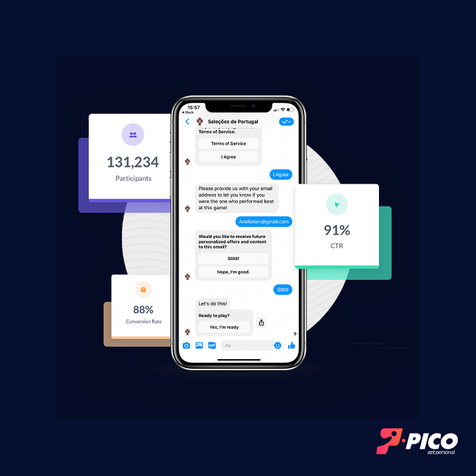 Future Goals The company’s short term goals are to expand the team and the budgets in order to support their long-term goal of accelerated growth within the sports, entertainment and CPG markets. Their mission is to drive personal connections, ensure that every fan's voice is heard, enable fans to be reached on the channels they prefer, and provide a data-driven approach to fan marketing. Attention: Potential Candidates! Pico – Get Personal IS HIRING!!! Contact Details Email: [email protected] Website: https://www.picogp.com/ LinkedIn: https://www.linkedin.com/in/asafnevo/ https://www.linkedin.com/company/picogp Twitter: https://twitter.com/PicoGetPersonal Facebook: https://www.facebook.com/PicoGP  by Arlene Marom URL for this Blog Post: bit.ly/3kD7YzM Millions of people around the world dream of creating games based on their own unique ideas and content. However, they are often hindered by their lack of coding knowledge ‒ or because the available online options severely limit their creativity. With the CloseApp Game Generator, no coding is required ‒ and game creators are limited only by their imagination! The company provides a wide variety of game templates, with 25 already available and many more on the way. Templates are exceptionally flexible, with most components easily modified, thus providing a vast array of options. Games can be created for individuals or for teams ‒ with team games played in either a physical or virtual shared space. All CloseApp’s games can be embedded in any Internet site, and cost only about 1% of the price charged for outsourced game creation. The Company The Founder of CloseApp, Ami Hanya, worked as a teacher for some time, while creating games as a hobby. Friends began requesting that he create games for them, and as these requests continued to multiply, he made the decision to give up teaching and create his own startup that would enable simplified game generation. Located in Kfar Tapuach in Israel, the company participated in the FIGA accelerator ‒ a 5-month intensive program that helps entrepreneurs develop their companies, learn about agile thinking, innovative work methods and networking, and lay the foundation for international business. The company also participated in The Gate’s accelerator program, which offered innovative professional tools, guidance by experienced mentors, and exposure to investors. Today, CloseApp has 15 employees ‒ mainly highly-skilled developers with an array of specializations. The Game Generator is up and running, and has become quite popular. The company has often presented at Content Creation and EdTech conferences, where its solution gained a reputation for flexibility and ease-of-use. It came as no surprise, therefore, that during the period of COVID-19 quarantines, many organizations and companies built websites full of games they had created with CloseApp. The variety and level of creativity exhibited in the games that were generated amazed the CloseApp team, and provided an important lesson: The fundamental factor differentiating a good game from a great game is the creativity of the game’s inventor. The company’s developers are themselves enthusiastic users of the Game Generator, and are therefore familiar with their solution from the vantage point of the users ‒ an important advantage in the improvement of user experience and awareness of the convenience and efficiency of the game creation process. Feedback from users is heartily encouraged and often utilized in the continuous enhancement of templates and in the creation of new features. In addition to the Game Generator, CloseApp also provides a number of services, including app development in a variety of technologies and operating systems (Android, iOS, Windows), web development using the latest development and design languages for simple or complex sites (Wordpress, HTML5, JS, CSS, PHP, Vue, ZIMjs, etc.), landing pages and banners, expert campaign marketing advice (they have produced hundreds of campaigns for clients and advertising agencies) ‒ and, of course, game development for those who prefer to outsource their game development or who need more complexity than is available with even the most sophisticated templates.  The Vision CloseApp sees its Game Generator as the Wix of Games, enabling people around the world to create unique, high quality digital games without the need for coding. They envision becoming the major player in the game generator field ‒ the default generator for anyone seeking to create a game. Their target market today is anyone interested in presenting content as a game. In the future, they will also target content consumers. Contact Info: Email: [email protected] Mobile: +972-54-6702328 URL: https://closeapp.co.il/ (English website coming soon) Facebook: https://www.facebook.com/closeapp.co.il/ LinkedIn: https://www.linkedin.com/company/closeapp/about/ This blog is dedicated to Israel's amazing high tech community. We will feature posts for and about our startups and about the ecosystem that nourishes and encourages their astounding creativity and guides them in the achievement of global success. --- Arlene Marom
URL for this Blog Post: bit.ly/3AGV3Cr |



